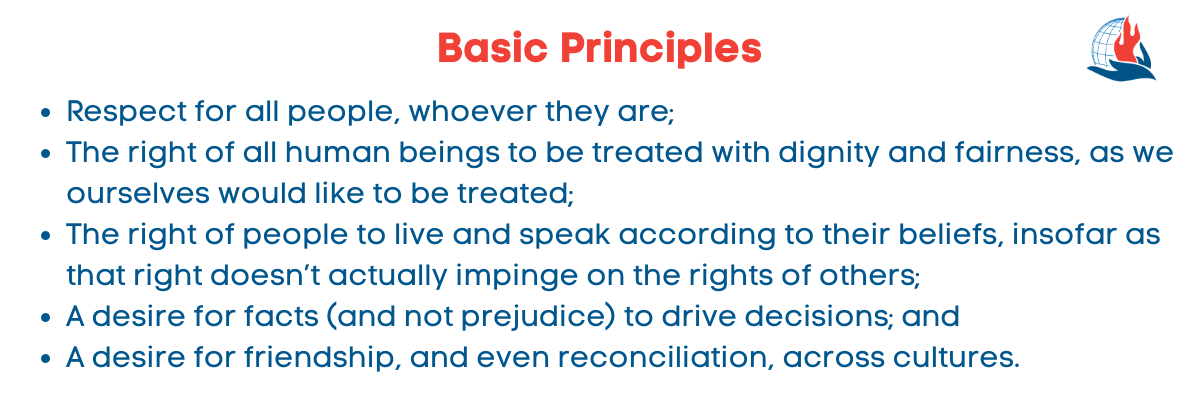 by Kent Johnson, J.D., Senior Corporate Advisor, Religious Freedom & Business Foundation
by Kent Johnson, J.D., Senior Corporate Advisor, Religious Freedom & Business Foundation
Part of the blog series, Authenticity & Connection
We’re increasingly bombarded from all sides with shouts of alarm. Urgent calls to action rally people who agree, and ascribe evil intent to those who don’t. If we’re not offended at the evil intent driving the “other side,” then – it’s presumed – we must be ignorant or stupid … or, worse, we don’t really care.
If we talk about a need for “thicker skin,” are we promoting an insult culture and giving a “pass” to those who say hateful, inaccurate things about us? If we talk about a need for “greater sensitivity,” are we agreeing with others who’ve labelled us mean-spirited bigots?
The loudest voices shout that, if we talk about “greater sensitivity and thicker skin,” we’re naively playing into the hands of the evil conspirators; that we’re adding credence to their groundless cause. Are they right?
The answer is no. But it’s not quite that simple.
At the upcoming Faith@Work ERG Conference (Feb. 9th-11th) we’ll step boldly into this morass. The speakers are people on the “left” and on the “right,” representing a hugely diverse range of faiths, beliefs and ideologies. It’s a hopeful conference where we’ll try to highlight common ground.
Leaning against the tide of these divisive times, the diverse organizers of this conference are appealing to a higher “calling.” It’s a calling to humble self-reflection, in light of some core relational values that people of faith everywhere – and agnostics and atheists – say they embrace. Principles like those I’ve listed before:
These kinds of principles, though widely voiced, are very hard to live by. Their implications drive self-critique and sober reflection on how people on the “other side” are feeling – and why. They require that we listen deeply to people with whom we have major differences; and that we stop jumping to conclusions about their motives.
In the worst case, perhaps a dialogue on these kinds of principles will shed light on how fundamentally deep the divide has become. We’re more hopeful than that.
To be sure, the workplace focus of this conference is just a start. But we’ve seen that diverse workplaces can be fruitful grounds for deeper connection and harmony, if they’re approached wisely. We start by walking with people in our everyday circles, one to one, navigating the fairness and operational issues relevant to our work tasks. In doing so, we connect on a deeper level, to build trust and respect across ideological boundaries. We won’t necessarily solve the national policy issues in this way, but over time, the entire world is enriched by the relationships we forge at work as we build greater sensitivity and thicker skin.
To those who say seeking common ground is fruitless, I ask: What’s the alternative? Are we to pretend the fissures in our society aren’t growing? Shall we dig our bunkers deeper, and engage on a meaningful level only with those whose specific policy goals align with ours? Is that a recipe for peace and reconciliation?
There’s a better way. I hope many of you will weigh in on this, and join us for the virtual conference.
Comment on LinkedIn or Facebook.
Invitation: If you’re ready to advance civility and connection in the workplace, join us each week for Authenticity & Connection, a concise and thought-provoking reflection by Kent Johnson and guests; and help shape this important dialogue by weighing in via LinkedIn or Facebook.

